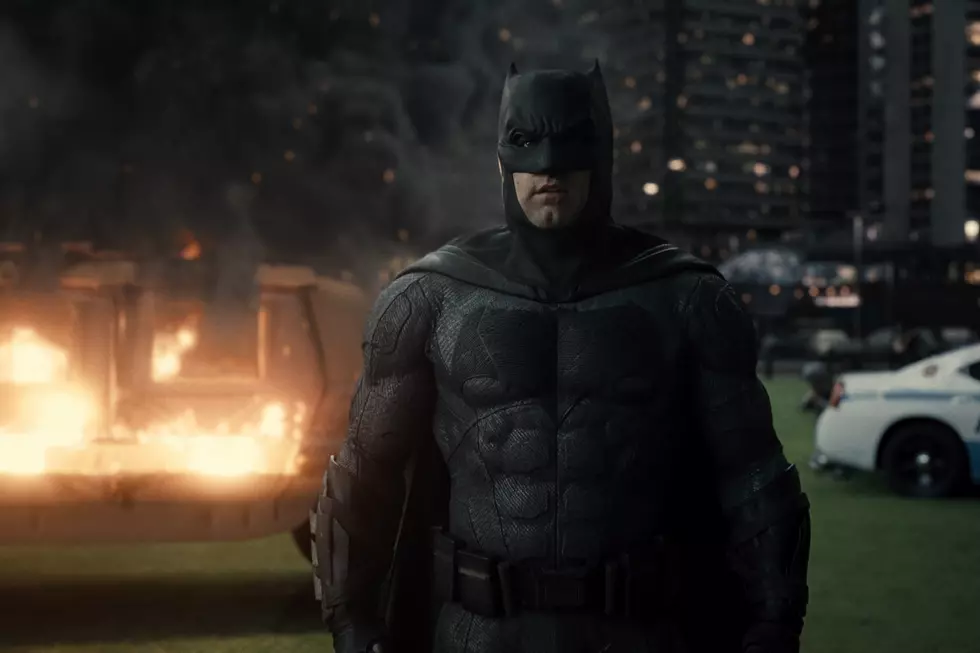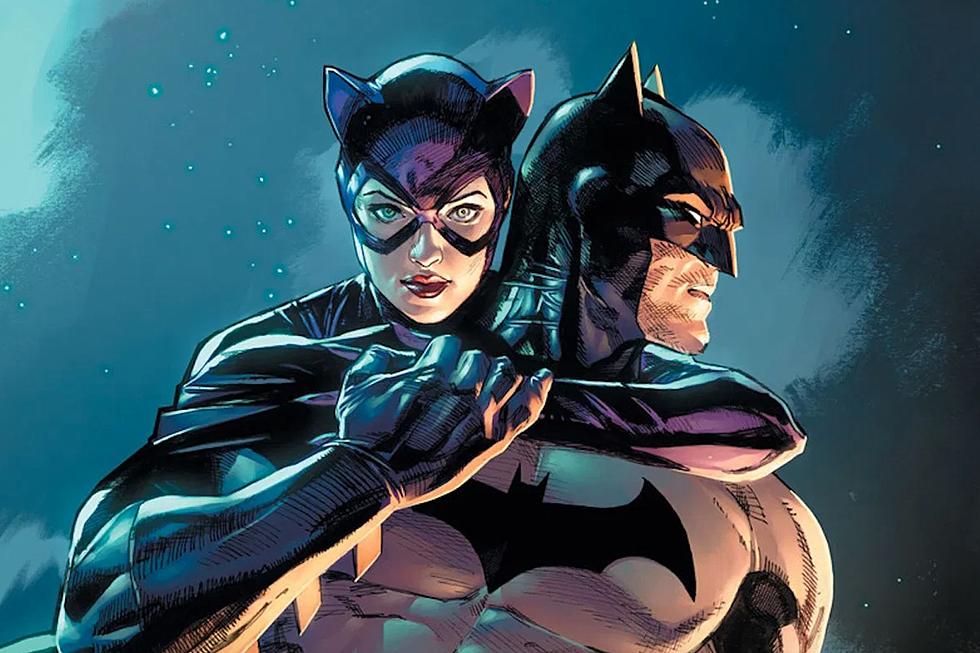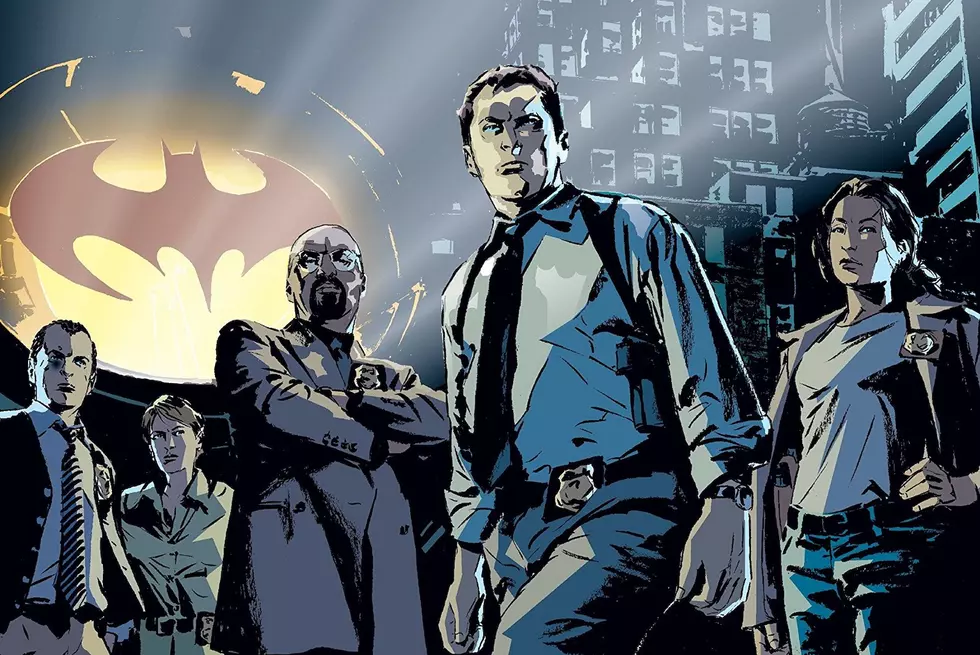
‘Gotham’ Season 1 Recap, Episode 4: ‘Arkham’
Now that six additional episodes of the crime drama Gotham have been ordered by Fox, we’re looking toward a full 22-episode first season. Although ratings have dropped since the pilot (Sleepy Hollow, also on Fox, was one of only three shows ranked below Gotham Monday night), the series about Batman’s beginnings has managed to hold a firm grip on at least 75% of its audience.
One problem cited by critics familiar with the Batman mythos is Gotham’s inclusion of too many characters (with forced relationships) at the onset. Like an all-you-can-eat buffet, the overstocked spread leaves us inexplicably unsatisfied. On the other hand, whiffs of treats about the city itself – its cavernous sewer system, detached outskirts, and now, the Arkham District – keep us lingering around for something savory.
The War Begins
This week, the consciously grim Gotham featured a new villain of sorts: Arkham, the run-down, inoperative mental health asylum, which is surrounded by more than two dozen underdeveloped city blocks. It becomes clear that the Arkham District comprises nothing but Gotham’s grimiest, yet the two most powerful people in Gotham, mob monarch Falcone and restaurateur/crime-lord Maroni, want ownership of the territory as well as the infamous lockdown facility.
Riddle me this: You, an aid to a well-known Gotham City Council member, are approached late at night in a parking lot by a strange man who says he’d like to “show” you something. He pulls out a metallic, telescopic pointy-thing and tells you to “look inside” it. You also know this: Just days ago, a strange man sent several high-profile Gothamites to their deaths via giant weather balloons. Do you comply and peer into the gadget? Well, the assistant to Councilman Jenkins does.The steampunk-ish telescope shoots a sharp blade into his eye, puncturing his brain. And he dies. Though he tries to flee, we see Councilman Jenkins meet a similar fate. Does anyone in Gotham learn? They might need a hero at this point, but do they really deserve one?
Anyway, so begins the great war between mob bosses Maroni and Falcone. We learn that an important vote taking place in the next couple days will determine whether Arkham Asylum will be renovated into a state-of-the art mental health facility the way the Waynes had proposed before their deaths (a plan supported by Falcone and backed by Mayor James). The development proposal would also include brand new, affordable housing for Arkham City residents. Maroni’s camp, on the other hand, favors the opposing vote: Arkham Asylum is to be torn down, and the entire district will become a dumping site. They don’t clarify what will be dumped there (Bodies? Leftovers?), but the drive to take over old Arkham is deadly, with politicians serving as casualties.
James Gordon: Always Surprised
Detective Gordon (played by Ben McKenzie’s eyes) might benefit from a legally prescribed anxiolytic. He’s the single person in town who still believes in a “good” Gotham. Thus, every murder, every disappearance, every filthy discovery is a shock to the good-hearted detective. In the beginning of this episode (and the cliffhanger of the last), a knock is heard on Barbara Kean's (Erin Richards) front door. She answers to find a suited up, smug Oswald Cobblepot (Robin Lord Taylor). “Hello, James, old friend,” he smiles as he looks into the living room at Gordon, keeping their secret between their stare, the shared knowledge that Gordon was ordered by Falcone to murder Cobblepot, but instead dumped him into Gotham River with the directive to never return. Gordon is mortified. “I’m recently back in Gotham,” Cobblepot continues, “and I decided to pop by.” Gordon’s eyes grow incredulous. Really?! Oswald is in my house? How is this possible? Why is he here? It’s his most common expression: Gordon stares, wide-eyed and speechless, as if this is his first day in Gotham. Panicked, unprepared, winded Gordon. Gotham’s punching bag. Even young Bruce Wayne (David Mazouz), at this point, has grown accustomed to the city’s anthropophagy.
With the surprise visit by Oswald, the metaphoric voices begin to whisper to Gordon. Gotham creates evil. Gotham is corrupt. Turn to the dark side! Gordon snaps, leading Cobblepot outside into the alley and holding him by the collar against the building. “I should have killed you!” he grunts. “But you won’t, Jim.” Cobblepot says. He acknowledges that Gordon saved his life back at the dock. “You’re a good man, which is why I want to help you. There’s a war coming…I’ll be your secret agent.” Before Gordon can make a decision, strangers are heard walking into the alley. Gordon releases Cobblepot, who disappears into the night.
After Maroni sends a firm message to politicians by murdering Councilman Jenkins, Falcone fires back with actual fire. His hired hit man burns Councilman Zeller alive just inside of Akham Asylum’s gates. Not surprisingly, Detectives Gordon and Bullock (Donal Logue) are assigned the case. It’s Edward Nygma—yes, that Edward Nygma, the one who will become The Riddler at some point—the GCPD forensic operative, who, speaking giddily in riddles, announces that the murders on both sides were committed by the same telescope-wielding man). Played by Cory Michael Smith, Nygma gets less than a minute of screen time, which is about enough time to be intriguing without being annoying.
Indeed, Oswald later phones Gordon at the police station to inform him that there will be another politically-based murder. “Gotham is my home--” Oswald whispers. We know, we know. But the tip helps Gordon out; the next victim is a supporter of Falcone. After he realizes that Mayor James (Richard Kind) is the target, Gordon literally pushes his way into the Mayor’s home to secure his safety. He explains the threat—telescope murderer on the way to kill you!—and the Mayor immediately begins to unload his safe’s contents into a bag. When they’re ready to evacuate (Jim insists they go anywhere but the police station; Mayor James decides on his sister’s place), they open the front door wide open, and the telescope man is there, ready to attack, exactly as Gordon predicted! Only Gordon is surprised. Always surprised.
A scuffle inside the Mayor’s home ensues between the eye-stabbing, telescope hit-man and Detective Gordon, but Bullock arrives in time to save Gordon’s precious, incredulous face. They both shoot the killer repeatedly, knowing that the real offenders are Falcone and Maroni.
The Penguin Works His Way Up the Ranks
Of course, it’s Oswald “Penguin” Cobblepot who upstages the villain-of-the-week. A dishwasher at Maroni’s restaurant, he’s determined to become an influential, powerful figure in the criminal community. As discussed previously, Oswald appears impulsive and juvenile when it comes to violence. It’s as if his initial attempts to bargain or make threats for money (kidnapping) were so unsuccessful that he decides brutality is the most direct, effective way to get things done. Terrorism and intimidation work for Fish Mooney and the mob bosses. Oswald’s talents are different—he comes off as timid, unknowing and even a little charming (Right? You see it, don’t you?), but when no one’s looking he’s secretly slashing throats and stealing sandwiches.
While mindfully tending to the restaurant’s kitchen, Oswald finds himself in the line of gunfire. Three men attack the restaurant, killing the manager and several of Maroni’s men. Horrified, Oswald hides in the freezer with a handful of money. He’s found, panting and groaning on the floor, by Maroni’s right hand, Carbone. When Maroni arrives, he’s impressed with Oswald’s commitment: “I show appreciation when it is due,” he gruffs, all mob-like. “What you did does not go unnoticed.” He promotes the beaming Oswald to restaurant manager. We’re so proud. Later, we see Oswald show up at an abandoned apartment where the three robbers are celebrating their successful heist of Maroni’s restaurant. Sweetly, he offers them cannoli. “Eat up,” he instructs. “You guys deserved this.” Moments later, they’re dead.
It may not have been a huge surprise that Oswald had set up the restaurant robbery—nonetheless, it’s realistic for someone with his level of psychopathy to come off as inconspicuous while secretly engaging in extreme violence and enjoying it. There’s a sense of pleasure derived from serving delicious, poisonous cannoli. Given his presenting behaviors—extreme violence, deceitfulness, impulsivity, disregard for others, lack of remorse or any kind of emotional response to his actions—the most likely diagnosis that characterizes Oswald Cobblepot is Antisocial Personality Disorder. Common symptoms include an inflated sense of self (a grandiose belief that he and Gotham are intertwined), lack of empathy for others (senseless, impulsive murders), failure to conform to social norms (questionable here, due to the universal disregard for laws in Gotham), and superficial charm (still just me?). Maybe it’s his adorable association between food and murder, but The Penguin is, by far, the most fascinating character on the show.
Alfred Apologizes
We see very little of young Bruce in this episode, perhaps for the better. However, there’s a noteworthy moment between Bruce and Alfred, one that allows us to realize Alfred’s initial appearances as the threatening, unaffectionate caretaker were just evident of an acute stress response. Bruce awakens from a nightmare about his parents’ death in crime alley. Hearing him scream, Alfred rushes in to ask if Bruce is okay. “Bad dream,” Bruce says, relieved. “Was I in it?” Alfred asks, acknowledging that he’s been a prick. “Not this time,” Bruce smiles, acknowledging that he’s forgiven Alfred for being a prick.
Truth be told, Alfred has grown more patient, empathic and self-aware. Bruce is less morbid, less closed-off and a bit more, well, like a normal human boy. He begins to wonder about the council member murders, hypothesizing that his parents’ murders may be linked. Unlikely that this kid is this good of a detective this early on. But, in a way, we’re content to hand over the case files, pat him on the head, and give the kid some more practice in the field of neurocriminology.
Diagnosis
The Mayor’s hide may have been saved, but at the end of the episode he announces an unexpected compromise: Arkham will be retrofitted into a cutting edge facility, and the surrounding land will be converted into a waste site. Maroni, seeing this as a victory, takes a greedy, celebratory bite out of a ridiculously large chunk of beef. Little Bruce, watching the Mayor’s announcement on the news, solemnly states the obvious, “Everything is falling into the hands of the criminals.”
Truthfully, questions surrounding Arkham’s future seem pointless at this time. What will become of Arkham? Who will run it? What kind of treatment will Gotham’s citizens with mental illness receive? We were only teased with the familiar front gates of the ominous mental health facility and it’s unclear whether we’ll see more before the season is over. We know, though, that over the course of Bruce’s upbringing, Arkham will become the festering heart of Gotham, beating life into the city’s infected veins. A vicious snake eating its own tail. It will be interesting to see how a city that clearly has far too many villains will survive without a hero. At least, one that’s not constantly in a state of disbelief.
More From ComicsAlliance









